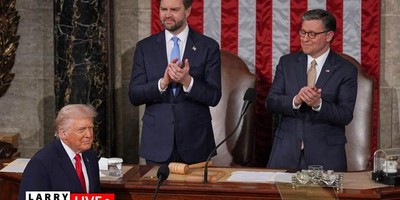As the holiday shopping season approaches, consumer may find an unlikely adversary: the retail industry. According to reports, “big retailers like Walmart and Apple ramp up their holiday ads early this season” and “Representatives from leading retail associations name online sales tax legislation as a chief concern for their members right now.”
That’s right, the retail industry is targeting online Christmas shopping.
What proponents misleadingly call the “Marketplace Fairness Act” would significantly increase the cost of buying goods on the Internet. The bill would force online businesses to collect and remit sales tax based on each customer’s location. Put another way, it would turn small, online businesses into tax collectors for states in which they have no real connection. Sen. Max Baucus (D-MT) called it a “clear infringement on states’ rights that we cannot stand for.”
Even more alarming is the possibility that California tax bureaucrats could audit a Wyoming-based Internet business if they believed the business was not remitting the proper amount back to California. To protect themselves from overzealous tax bureaucrats in revenue-starved states, Internet-based businesses would likely hire expensive lawyers and accountants to deal with burdensome paperwork and complex tax laws. America has nearly 10,000 taxing jurisdictions and even though bill would require some streamlining, those businesses would still face the threat of 47 out-of-state audits.
A new survey by accounting firm McGladrey found 98-percent of businesses “would pass along increased compliance costs to the consumer.” That is bad news for consumers, but it is exactly what many in the retail industry seek. The Retail Industry Leaders Association’s Jason Brewer told Politico, “Retailers big and small are rowing in the same direction to make this the last holiday season online-only retailers get special tax treatment over Main Street.”
Recommended
Not exactly.
First, there is no special tax treatment. As the Associated Press pointed out earlier this year, “In many states, shoppers are required to pay unpaid sales taxes when they file state tax returns.” That goes for online purchases as well as out-of-state purchases. The near-impossibility of enforcing existing law does not justify turning online businesses into out-of-state tax collectors. If the retail industry were truly interested in “fairness,” they would be demanding the same collection activity from physical retailers in “tax-free” Delaware.
Second, size does matters. The McGladrey survey found attitudes toward the Internet Sales Tax differ substantially based on size. Accounting Today reported:
“McGladrey polled online retailers with annual revenues between $10 million and $1 billion, and found that only 38 percent of them projected that the MFA would have a negative impact on their profitability. However, the picture changed significantly when comparing projections in the higher versus lower revenue ranges. While 50 percent of executives at companies with annual revenues between $10 million and $50 million projected negative impacts on profit, the number dropped to 22 percent for executives at companies in the $150 million to $1 billion range.”
A 2010 study on the top 20 “E-Trailers” found 15 of those retailers – and yes, this includes Walmart and Apple – paid sales tax in 44 or more states. NPR reported another, Amazon, “is already facing a big tax collection requirement as it develops its next-day-delivery service.”
The fight over the Internet Sales Tax isn’t a Main Street versus Internet Retailer fight; it’s a fight to trample competition and preserve market share. Steve DelBianco, the executive director of NetChoice, which opposes the bill, said this “has never been about helping Main Street, but about helping Big Box stores.”
As Barack Obama’s signature legislative achievement (and presidency) continues to crumble before our eyes, proponents of this tax plan are continuing to work quietly behind the scenes. Conservatives must ensure the tax-schemers do not play the role of the Grinch who stole Christmas.

























Join the conversation as a VIP Member